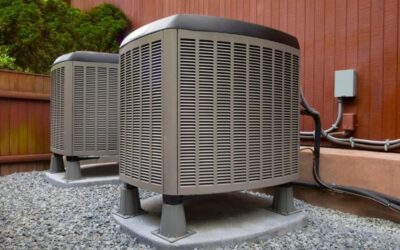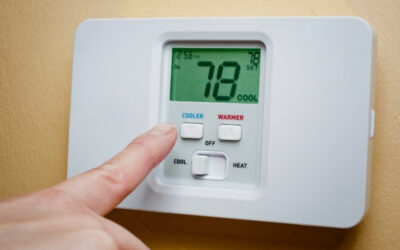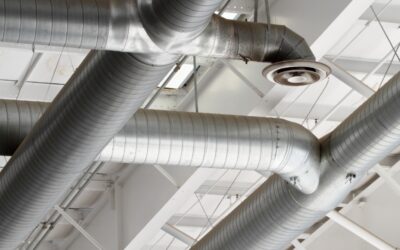You’ve probably heard that humidity, not heat, is what makes a sultry summer day uncomfortable. The adage has some truth to it. Moisture in the air affects how you perceive temperature; on a steamy summer day, the water that evaporates from your skin to cool it has nowhere to go. You feel hot and sticky even when the temperature isn’t very high. Your air conditioner improves indoor air quality by removing excess moisture in the air as well as cooling it.
Demystifying Moisture
All air conditioning units also dehumidify to some degree. Cool air holds less moisture than warm air, so just turning down the temperature wrings some of the water vapor from indoor air. When meteorologists talk about relative humidity, they mean that 50 percent humidity at 80 degrees feels considerably wetter than it does at 40 degrees. As your AC blows supply air over the chilled evaporator coils, it removes some of that dampness, which is why your AC unit has a drip pan to catch moisture.
Muggy air isn’t just uncomfortable; it can also contribute to mold growth and reduce overall indoor air quality. In Columbus, GA, spring and summer months often feel uncomfortably muggy. Add the moisture created in your home from cooking, showers and just breathing, and your AC alone may not be able to dry the air enough for comfort. A dehumidifying unit takes up where your air conditioner leaves off, removing more moisture and contributing to a cool, dry environment.
How Does a Dehumidifier Work?
Dehumidifying systems operate on similar principles to your main AC unit, cooling air to remove some of its excess moisture. Some systems also use fans to drive air through desiccants, materials that soak up water vapor in the air. Silica gel is a common, non-reactive desiccant that you’ve probably already encountered in other contexts. The grains in those little packets in some foods and medication bottles are silica gel. In dehumidifiers, the gel does on a large scale what it does for pills and paprika on the small scale.
Central air dehumidifying systems help your air conditioner do its job more efficiently. Many new systems installed in southern homes already have a dehumidifying system built in to condition air before it reaches the AC unit itself. On temperate days, you may only need to dehumidify the air in your home instead of cooling it, reducing your energy bills and sparing wear and tear on your AC unit. Depending on how well the weather cooperates, you may not even need to turn on your air conditioning unit until well into summer. Leaving your AC off throughout the spring and fall may add up to significant savings on your utility bills.
Call the specialists at Indoor Solutions Inc. to learn more about how you can improve indoor air quality while keeping costs low with a dehumidifying unit.



